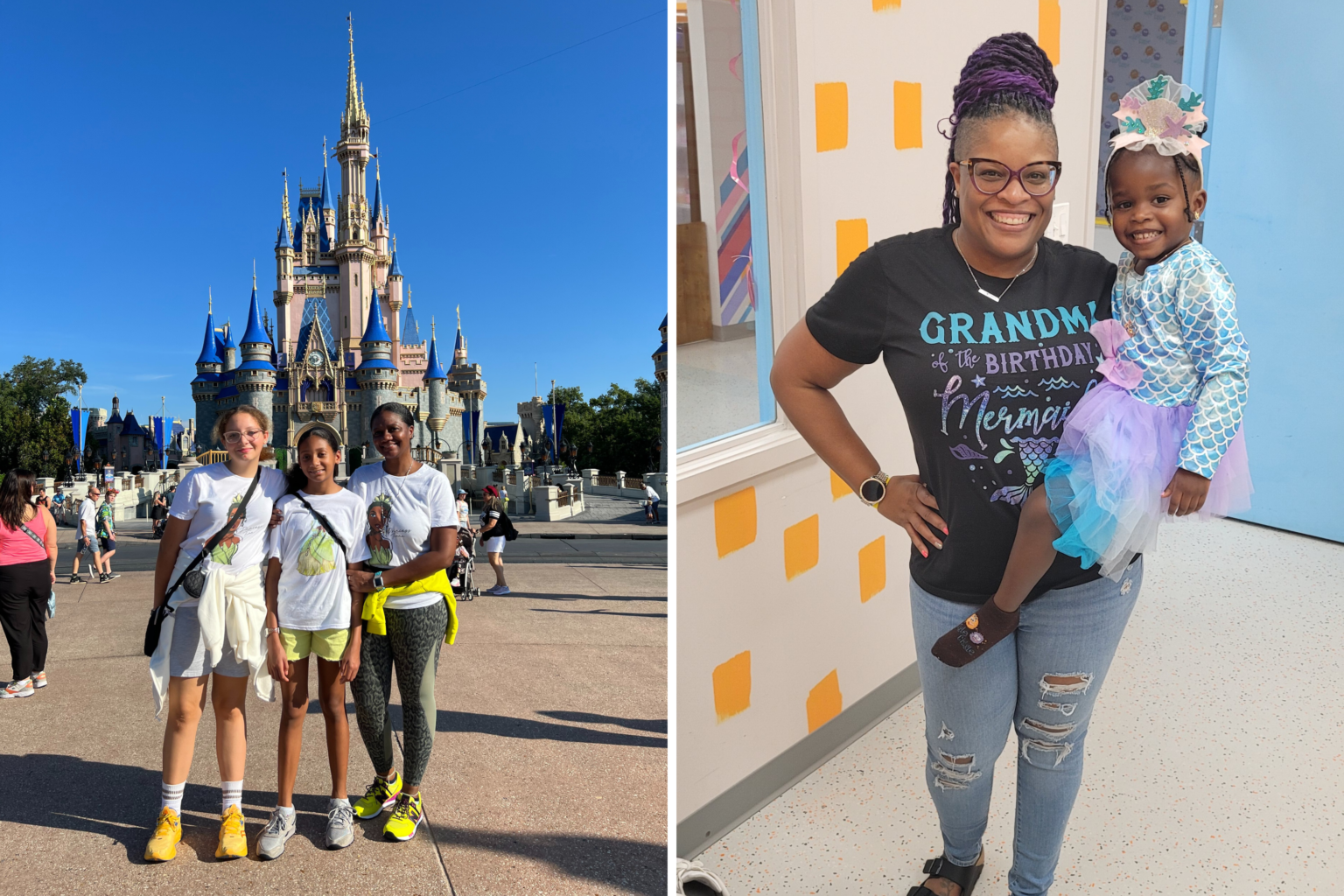Rhonda Marie Alston’s life changed in an instant at the age of 48 when she received a phone call in December 2021. While visiting her hometown of Raleigh, North Carolina, Alston learned that her sister-in-law had passed away unexpectedly, leaving her two young nieces without a mother figure in their lives.
“I knew at that moment my life had changed. I didn’t know exactly how, but I knew that my life had changed,” she told Newsweek. “I have a big, beautiful family, but I knew it was probably best if I was the one that would be there for them.”
Having lived in Georgia for nearly 26 years, Alston suddenly found herself back in North Carolina, navigating the challenges of raising two girls—four and seven at the time—after stepping into legal guardianship.
The transition was difficult, not just for Alston but also for her nieces, Sky and Destiny, who were grieving the loss of their mother while adjusting to their new normal.
“It was sad and stressful. Making them feel comfortable knowing that they are loved and that I would be there for them as well as the rest of the family,” Alston said. “We’re still adjusting, trying to make it all make sense, maintaining a mortgage and paying rent, and keeping them in the school system.”
Alston is someone that’s defined as an “accidental parent,” which is any person taking responsibility for raising children who aren’t biologically theirs. This could be as a result of parental addiction, incarceration or trauma, according to Adrienne Alexander-Allen, author of The Accidental Parent: Nurturing Love in Unforeseen Circumstances.
These are people who, without question, expectation, or hesitation, step in to become the primary caregiver for children who may not have anyone else to care for them, as was the case for Alston.
For someone who had never raised children before, becoming an accidental parent in her late 40s was daunting for her.
“I was clueless to it. I’m 51 now and most of my friends had children 25, 30 years ago, so I’m having to lean on them to get through this time,” she told Newsweek.
Nevertheless, Alston and her nieces have developed a strong bond and they now call her mom.
“I didn’t realize how much that word means to me. If people don’t know us, I introduce them as my daughters so that they know that they have that security,” she said.
She also added that no one made her feel as though she had to raise her daughters.
“It wasn’t even a question and the fact that I was in town was my answer,” she said.
Alston is committed to keeping the memory of their mother alive by talking about her. The girls also have bracelets with her name on and they keep photos of her in the house.
“They might do something, and I’ll say, ‘Mom used to do that’,” she added.
Alston is also grateful to her partner who has embraced his unexpected role as a father figure.
“Unfortunately, we have not been able to have biological children, so we’re thankful to have this experience now. Having the opportunity to raise children is something we just didn’t have a chance to experience,” she said.
Alexander-Allen’s grandparents began raising her because of her parents’ struggles with alcoholism and addiction. Later, she took in her younger brother and is now the primary caregiver for her granddaughter, whose mother is incarcerated.
She told Newsweek that the impact of being an accidental parent covers a range of levels.
“The impact is felt in so many ways,” Alexander-Allen said. “Emotionally, financially, and mentally. It’s such a roller-coaster to go from the life you had planned of retirement, travel, or just being free to move as you please to changing diapers, paying for daycare and babysitters, and being responsible for another person. Everything changes.”
For Alston, maintaining a balance between her new responsibilities and personal life has been a constant challenge. As a producer, sports and talent manager and filmmaker, she has to wear multiple hats at home and in her professional life.
“It’s a lot of work and it’s scary because you want to make sure that you’re making the right decisions, but they let me know that they feel comfortable and that they’re happy and loved. I’m still trying to understand how I lived without them.” she said. “It’s sad how we became a family, but God is in control. Our faith is what keeps us going.”
Alexander-Allen encourages others who have found themselves in the position of being an accidental parent to give yourself time and grace.
“First, don’t be afraid to ask for help. You’re not alone in this,” she said. “Second, take small moments for yourself, whether a five-minute break or a quiet walk. And third, remember that no one expects you to be perfect—do your best, and that’s more than enough.”
Read the full article here

